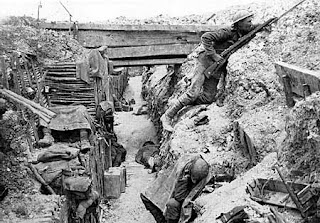
As humans we organize ourselves into groups. Our family might be nuclear or extended, patrilocal, matrilocal, bilocal, ambilocal, or neolocal. We organize ourselves economically (in terms of our vocation), religiously, artistically, and in terms of entertainment. We also form political groups on municipal, provincial, and federal levels.
Patriotism is the force binding people at this national level of grouping, and it is akin to a very powerful, addictive drug. This drug makes people feel really good about themselves: they want to sing and dance, tears stream down their cheeks, and they feel very, very proud for simply belonging to a nation state.
Perhaps it is a good thing for a nation state to take this drug now and then. During the Olympics, people in this country felt really good about being Canadian. We began as a nation to collect medals like so many stamps, treasuring our first gold medal in a Canadian Olympics, and celebrating 14 gold medals and 26 in total. Gosh, the pride was palpable. People are still debating whether Sidney's goal was the most important in Canadian hockey history.
However, this drug has a strange and dangerous side effect. While it definitely increases one's emotions and desires, it also seems to inhibit our capacity for reason.

One very ugly example of this took place in the run-up to WWI. An Austrian arch-duke was assasinated by a man who wanted an independent Serbia from the Austro-Hungarian empire. Germany supported Austria that was suppressing this eventuality. Russia supported the Serbs, France was bound by treaty to support Russia, and England was bound by treaty to support France. Canada, as part of the British Empire, was very involved from the outset. During the months leading up to the outbreak of violence, the streets of the capital cities of Europe were thronged by hundreds of thousands of demonstrators clamouring for war. The drug of patriotism had driven people into a mass frenzy, and they demanded that their governments declare war. Eventually, the heads of states did indeed declare war, and patriotic people throughout Europe threw themselves over the top of the trenches to die in the millions. Throughout the British Empire, including Canada, people would give to those able-bodied men not in uniform a 'white feather of cowardice' in public displays of humiliation.
This is just one example of how unbridled patriotism can prevent us from exercising our reason. The basis for that war was downright silly. I am not convinced that had clearer heads prevailed in early 1914, the problems might have been worked out at a conference of all the stakeholders. However, the drug of patriotism was simply too strong, and reason was set aside. My point is this: the drug that inspired people to run into machine gun fire is the same drug that inspired tears of joy at Canada's gold medals.
Now that the Olympics are over, we can set aside this drug for a while.



















